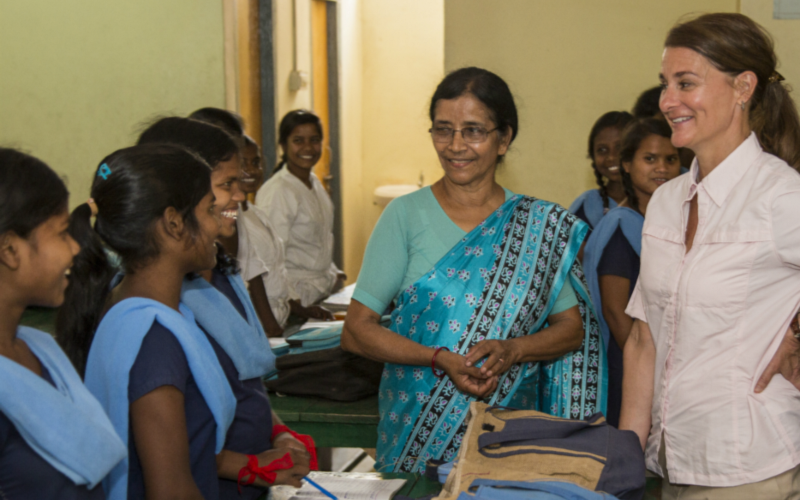Bill and Melinda Gates, Co-Founders of the Gates Foundation, call India the land of ‘relentless, passionate optimism’. Since today is the day of love, we bring you two stories of citizenship and stewardship from rural India, mirroring this sentiment. Parts of the text below are from Melinda Gates’s personal experience.
On the path that we at Desh Apnayen have chosen, passion for growth and progress is a must. When we see, through the eyes of others, that the poorest of our communities are single-handedly focused on the same, it makes us both, humbled and proud.
If we look at the data across metrics for India, we find joy in the fact that India is moving in the right direction. Last year, India was certified polio-free, a stunning feat made possible by healthcare workers who are bringing modern medicine to even India’s poorest, most remote areas because of sheer dedication and servitude to a cause.
India is moving in the right direction in large part because of organisations and people like these:
- Prerna
Prerna is a girls’ school in Bihar, run by an incredible founder named Sister Sudha. Along with academic and computers, Sister Sudha also ensures subjects like drumming and karate find way in the curriculum, so that girls can feel their own power and purpose. Most of the students at Prerna come from the marginalized Mushahar community. All their lives, these girls have been taught that they are untouchable, that their lives have no value, and that they should expect nothing for themselves. But at Prerna, Sister Sudha teaches these girls that each one of them is precious and that all of them are filled with potential and possibility.

A fundamental part of Desh Apnayen’s school curriculum, Disha, is conversation. We believe that positive discussion is an understated yet very powerful tool of good citizenship. It is limitless in potential. Sabita from the story below discovered the same.
- Sabita
Quiet Sabita spent most of her life indoors. Then, on December 20, 2001 — she can still tell you the exact date — Sabita joined a self-help group. The theory behind self-help groups is simple: Bring women together to talk about ways they can improve life for themselves and their families, and it will unlock women’s potential to drive progress for their communities. In their weekly meetings, Sabita and her fellow group members started learning about ways to improve their crop yields and increase their incomes. Now, the group is tackling other problems, too, such as installing the first ever toilets in their village. Not only community empowerment, but Swachh Bharat too!

These examples show us that education, a certain amount of financial comfort or languages are no barriers in living the values of citizenship. We celebrate these stories and ask you to share similar stories from around you and your neighbourhood with us via comments under the blogs.
No journey is too long when taken together!
To read these and another inspiring story on Melinda Gates’s blog, click here.

